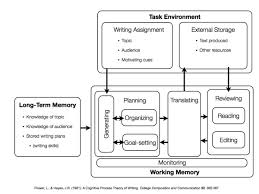Say you are the coach of a team of novice football players. You wouldn’t throw them into a very difficult match straight away, without the necessary training. Right? Surely you would make sure they received lots of practice in all the most crucial aspects of the game from the most basic skills (e.g. passing, drilling, tackling and shooting) to the most complex ones (e.g. defensive and offensive tactics). This is common sense, and it should apply to language teaching, too. Yet, many of us, from the very early days of A Level or IB, ask students to write cognitively and linguistically demanding discursive essays of some length, without teaching them all of the skills necessary to accomplish that challenging task effectively.
Not long ago, at a conference I attended, a teacher was emphatically asserting the importance of getting students to write essays from the very first week of AS. “I ask them to write two essays every week”- he boasted – ‘and teach them lots of grammar’. When I asked them how they learnt to write essays he replied “By writing lots of them”. Fair point, if your students are gifted linguists who read a lot ( in the target language), have highly refined critical thinking skills and are strong first language writers. But what if you students are not as exceptional?
In what follows, I advance the notion that any instructional approach to L2 essay writing should first and foremost be driven by a focus on the processes the task involves and should aim at equipping learners with the skills and strategies necessary to execute those processes effectively under real operating conditions (e.g. in the exam hall under exam conditions).
In order for the reader to fully understand the approach i advocate, let us look briefly at the cognitive processes involved in L2 essay writing, which I have already described in some detail in a previous article on this blog (‘Mapping out the foreign language writing process’).
The writing process
As the Hayes and Flower model (see Figure 1, below) shows, there are three major components to L2 essay writing:
- Task-environment – The task, defined by the essay requirements (essay title, audience, word limit, etc.) as well as any external resources one may want to use;
- Writer’s Long-Term Memory –the knowledge storage in our brain from which the writer will retrieve any information relevant to the task
- The writing process
Figure 1: The Hayes and Flower model (adapted from Hayes and Flower, 1980)
The writing process, as the figure above shows, is very complex and recursive – not linear as one would intuitively expect. The Planning process sets goals based on information drawn from the Task-environment and Long-Term Memory (LTM). Once these have been established, a writing plan is developed to achieve those goals. More specifically, the Generating sub-process retrieves information from LTM through an associative chain in which each item of information or concept retrieved functions as a cue to retrieve the next item of information and so forth. The Organising sub-process selects the most relevant items of information retrieved and organizes them into a coherent writing plan. Finally, the Goal-setting sub-process sets rules (e.g. ‘keep it simple’) that will be applied in the Editing process. The second process, Translating, transforms the information retrieved from LTM into language. This is necessary since concepts are stored in LTM in the form of Propositions (‘concepts’/ ‘imagery’), not language as we normally intend it (as made of words).
To execute all this processes when writing an argumentative essay in one’s first language is already quite a demanding task; but doing it in a foreign language is even more challenging. The human’s fragile and limited Working Memory has to juggle demands from all these processes, which often occur simultaneously, e.g.: whenever you set goals for the content of the next paragraph in the essay, you may evaluate them and decide you are not happy with them; so you may decide to re-plan. This means that Working Memory is loaded with lots of information. The resulting cognitive load becomes even ‘heavier’ when writing in a foreign language, when Working Memory must not only cope with idea generation, goal setting, organization and monitoring, but also with ‘translating’ propositions into L2 words and arrange them into grammatically correct sentences.
The translation process being particularly difficult to self-monitor for novice essay writers of intermediate proficiency, due to the demands posed by the higher meta-components, it is not surprising that these learners tend to rely massively on external resources and that the essay-writing process takes a lot of time (often with negative impact on motivation). Such reliance on external resources can often lead to plagiarism whether of the blatant or of the ‘smart’ sort (whereby the student picks bits from different sources and assembles them together intelligently, logically and cohesively). Although students are often blamed for such ‘unethical’ behavior, the truth of the matter is that they are often required to write essays when they are not developmentally ready for it both in terms of the higher order skills and of the lower ones.
Implications for L2-writing instruction
The most obvious implication of the Hayes and Flower model for L2 essay writing instruction is that teachers should train their student writers to operate effectively at each level of the writing process, across all the different processes it involves. Hence, exactly as one would do with the football scenario outlined above, language teachers should teach in separate sessions the specific sets of skills students require to execute each writing sub –process. Thus, for instance, in one session or set of sessions they would stage activities aimed at practising Idea-generation and planning; in subsequent ones, the teachers would work on evaluating the relevance of the ideas generated to the essay title; in other sessions, organization (coherence and cohesion) would be focused on; etc.
Parallel to this work on higher order cognitive skills, L2 writing instruction would also have to work on the ‘Translating’ process of essay production, thereby focusing on the language level, syntax/grammar and lexical development as well as the functions and the ‘mechanics’ of written discourse. By functions of written discourse I mean acquiring the L2 discourse markers necessary to introduce and sequence information (Tour d’abord, en plus, qui plus est, etc.), contrast ideas (e.g. en revanche), express a purpose (dans le but de, afin de, etc.), etc. Practice in these skills can still be done in writing, but in less threatening and cognitive demanding contexts just like in football training you would play shorter games, maybe using only one half of the football pitch, so learner writers should be engaged in shorter and more controlled tasks in which they are required to focus on specific functions and grammar structures.
When working both at the ‘higher and ‘lower’ level of essay composition, student writers should be provided with plenty of examples of good L2 writing which they will be asked to analyze by focusing on the generation, evaluation and organization skills or on the linguistic features under study.
Through extensive discrete practice in each of the different set of skills and discourse functions, the students will be able to execute each of the different processes involved in essay writing more effectively. This will lead, in turn, to greater processing efficiency and control over the overall essay writing process with more ‘cognitive space’ available in the writer’s Working Memory to monitor the higher and lower levels of their output.
In conclusion, teachers, in my opinion, ought to rethink the way they teach L2 essay writing. Instruction should equip the learner writers with process-specific skills which will enable them to execute the Planning, Goal setting, Organizing, Self-monitoring and Translating processes effectively and efficiently (in terms of cognitive load). Hence the Schemes of Work should be adapted to include extensive instruction in each and every one of these specific skills. Students should be made aware of the Hayes and Flower model components as instruction focuses on each sub-process; this will enhance their task-related metacognition i.e. their awareness of the skills each sub-process require.
Ultimately, it is process, not product, that should determine our L2 writing pedagogical approach. Teaching L2 learners how to master each and every stage of the writing process effectively will forge not just A* students, but more competent, independent and adaptive life-long writers.



Reblogged this on The Language Gym.
LikeLike
[…] How process-driven instruction may enhance foreign language upper intermediate students’ essay wri…. […]
LikeLike
[…] Source: How process-driven instruction may enhance foreign language upper intermediate students’ essay wri… […]
LikeLiked by 1 person